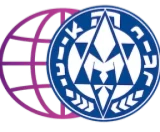By: Romi Morales
Yes, I know. The popular saying is a little different: “There is only one step from love to hate.” I must admit, I love popular sayings. Generally, many common senses that society has been building over time place in a small sentence. However, in this particular case, I am not sure that the saying is correct. I find it hard to believe that when you love someone or something, that feeling can become your opposite in just one step. I think, like everything, there was also a process (be more or less conscious). But what about the reverse path?
Tisha veAv is one of the most difficult dates in the Jewish calendar, but still lets us three great teachings, at least: 1) We have gone through different situations, many of them very terrible, tragic, painful and we have still managed to get ahead. In other words: it is possible to overcome adversity. 2) Generally, we have managed to overcome the challenges that have been imposed upon us when we join and work together. In other words and, using another popular saying, “union makes force.” 3) When there is gratuitous hatred among us, what is coming is destruction. As Martin Fierro said: “Brothers are united, that is the first law, because if they don’t, they are devoured by outsiders.”
I believe that the history of Am Israel has presented us with so many chapters where this is put to the test, which costs they believe that, even theoretically, we have not learned the lesson: “We must not hate for free”. However, I observe the reality and feel that “from the saying to the fact there is a long way to go”. That is; even though we have understood the importance of not hating ourselves, in practice, it still does not come to us. Don’t get me wrong. I think we’re trying. Nobody likes to feel hate. Hate charges us with negative sensations, takes energy away from us, takes us out of focus, it leads us to be those people we would never want to be, sometimes even the opposite. And I wonder then: why? Why does it tell us so much to leave feelings of frustration, anger, and aggression, instead, to take those of patience, humility, serenity, kindness, piety, compassion, and humanity? Why not stop hating for free to go to love for free?
In my humble opinion, I don’t think we’ve learned how to do this yet. And no, I don’t think it’s with one step, as the popular saying goes. I think it’s several steps, they’re processes: complex, challenging, difficult processes with oneself and with the “other.” Processes of introspection, critical and not least, forgiveness and cravings for change. Processes of tikun (repair) that involve both initiative, creativity, leadership. Processes where the value of human life (of all humans, of course) is at the center of attention and is not a slogan.
And, therefore, respect, tolerance, dignity, companionship, solidarity are constantly present. Yes. True, you have to be pluralistic so that this can be put into practice. Perhaps even this is a good starting point in our process of thinking about how we went from hate to love: understanding that the Other (with all that it entails: ideas, worldview, way of life, values, etc.) is different from me and yet deserves to be respected. Perhaps, if we do well at this point, let’s find that different is not bad, but is different. And in the encounter with difference we can grow, enrich, nourish ourselves and improve.
I think we are very fortunate to belong to Tnuot Noar like those of the Hanoar Hatzioni Family. In our Tnuot we have understood the importance of putting the Human Being at the center above all things. To human life at the center. Pluralism at the center. We have understood that fundamentalisms, dogmas and ideological radicalism and/or indoctrination have generated only harm, destruction and pain. And we, as opposed to all of that, have chosen the path of education, critical thinking, dialogue and freedom as some of the means to build our own path in the face of the mission of repairing the world.
I know there’s a lot of work to be done and there’s still a thousand things to improve. But I’m optimistic. Because even knowing that the process is long and not always straightforward, thousands of madrichim and madrichot in dozens of educational communities around the world for more than 90 years, have decided that this process is worthwhile. And Saturday to Saturday, they decide to devote time, energy, thought and heart to enter the peilut cheder and give their best to educate in all these values for and for their chanichim and chanichot. I am optimistic, because our madrichim and madrichot are the clear example that “Ahavat Chinam” (free love) exists and shows us that, as the song says, “love is stronger“.











